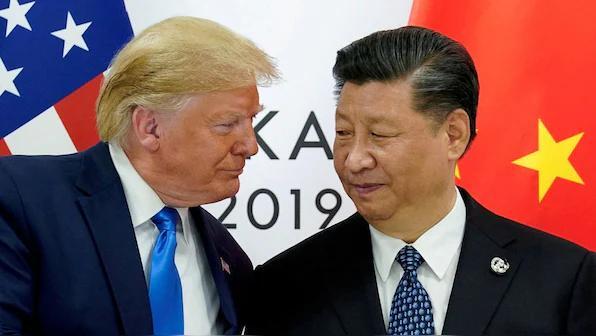
China Refuses to Join Denuclearisation Talks with US & Russia
In a recent development, China has rejected the call by President Donald Trump to join trilateral denuclearisation talks with the United States and Russia. The Chinese Foreign Ministry Spokesperson, Guo Jiakun, stated that it was “neither reasonable nor realistic” to expect China to participate in such talks, citing the significant difference in nuclear capabilities between China and the US.
This refusal comes as a significant blow to the efforts of the United States and Russia to engage China in talks aimed at reducing the threat of nuclear weapons. The US and Russia have been pushing for a trilateral dialogue, hoping to include China in the negotiations, but China’s stance has put a damper on these plans.
The news emerged on Wednesday, with Guo Jiakun stating that China and the US are not at the same level in terms of nuclear capabilities, making it unrealistic to expect China to participate in such talks. This is a clear indication that China is unwilling to compromise on its nuclear capabilities, and is instead opting to maintain its independence in this regard.
The decision by China to refuse participation in the denuclearisation talks is not unexpected, given its long-held stance on this issue. China has consistently maintained that it will not participate in any negotiations that compromise its national security or sovereignty. The country has also been vocal about its opposition to the US and Russia’s nuclear modernization programs, viewing them as a threat to its own national security.
The US and Russia have been pushing for a reduction in nuclear weapons, with the US proposing a new arms control agreement that would limit the number of nuclear weapons held by each country. Russia has also been calling for a reduction in nuclear weapons, but has been less specific about its proposals.
China’s refusal to join the talks is a significant setback for the US and Russia, as it means that the two countries will have to continue their negotiations without the involvement of China. The US and Russia have been trying to engage China in talks for several years, but China has consistently maintained that it will not participate in any negotiations that compromise its national security or sovereignty.
The refusal by China to join the denuclearisation talks is also seen as a significant blow to the efforts of the US and Russia to reduce the threat of nuclear weapons. The two countries have been working together to reduce the threat of nuclear weapons, but China’s refusal to participate means that the efforts of the US and Russia will be limited.
In conclusion, China’s refusal to join denuclearisation talks with the US and Russia is a significant development that will have far-reaching implications for the international community. The decision by China to maintain its independence in this regard is a clear indication that the country is unwilling to compromise on its national security or sovereignty. The US and Russia will have to continue their negotiations without the involvement of China, which will likely limit the progress that can be made in reducing the threat of nuclear weapons.



